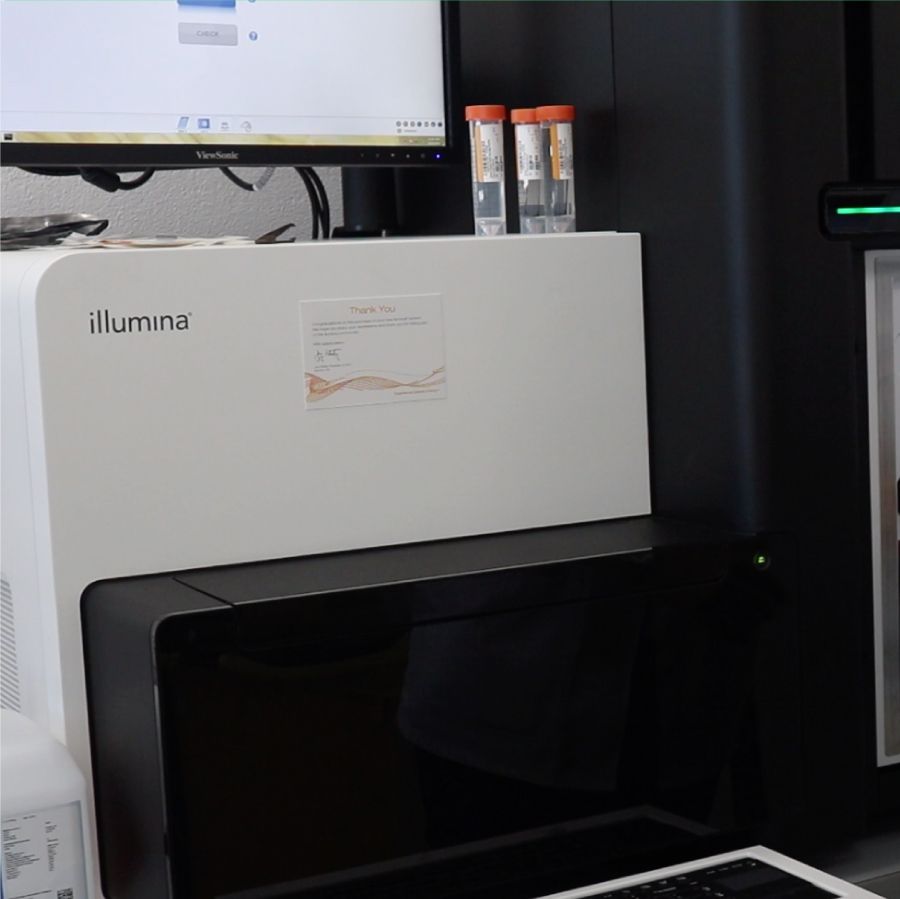Get to know our working areas

Personalized Medicine: data that heal
The combination of digitization, development and application of knowledge management tools, as well as advances in machine learning, artificial intelligence and data mining, are bringing the management and provision of health care closer to a substantial improvement in quality, safety, equity, and efficiency.
In this scenario, the concept of Prospective HealthCare is based on the integration of clinical and genomic data, a flexible integration that can be updated in real time.
Personalized medicine, data that heals, for each patient, for all patients as a whole and for the Health System itself.
Simulation and virtual reality
Simulation and virtual reality programs offer trainees and specialists the opportunity to learn and practice procedures of varying difficulty an unlimited number of times in a safe and risk-free environment.
The answer lies in innovation..


Prenatal Genetics and
Fetal Medicine Consultancy
A global portfolio of clinical, genomic and technological solutions to improve reproductive and perinatal outcomes,
with timely and reliable response for informed decisions that improves health outcomes.
Our services help to decision making based on information that empowers pregnant women, patients and families, and improves reproductive and perinatal outcomes:
– Screening and diagnosis of genetic disorders
– Reproductive Counseling
– Genetic Counseling
– Prenatal Genetics and Fetal Medicine and Therapy
Many things have changed since the concept of the fetus as a patient was developed in the 1980s.
Science, knowledge, and technology have transformed Fetal Medicine, which in the 21st century includes genetics and genomics, and has become the standard of care for thousands of patients around the world.
In this scenario, the combination of Prenatal Genetics and Fetal Medicine and Therapy provides a significant improvement in diagnostic precision, and therefore, in prognosis and treatment.
A healthcare model that women and society demand, and in which perinatal outcomes improve when pregnant women are referred to a center that provides the required level of specialized care.
The objectives of our Prenatal Genetics and Fetal Therapy Unit are to promote and provide early access to appropriate care for pregnant women, provide advice on the evaluation and monitoring of their problems and foster collaboration with other specialists and health professionals.
With a clear purpose: the well-being of mothers and the health of their children.
FAQs
What are the benefits of Prenatal Genetics in Fetal Medicine?
Due to the complexity of fetal pathology, as well as the implications of genetics in many fetal problems, approximately one-third of cases present to Fetal Medicine consultations with an incomplete or incorrect diagnosis. The combination of Prenatal Genetics and Fetal Medicine provides a significant improvement in the diagnosis, prognosis and treatment of fetal diseases and anomalies, since they allow them to be addressed in a totally personalized way.
How does genetic and reproductive counseling improve the care of our patients?
During pregnancy, apparently similar fetal diseases and anomalies can affect development differently because they have a different origin. An example of such a situation is congenital heart disease, one of the most frequent congenital anomalies.
Among the main advantages of the combination of Fetal Medicine and Prenatal Genetics, we can highlight:
- Genetics and genomics increase the possibility of an accurate fetal diagnosis.
- They represent another step towards better counseling for parents during pregnancy.
- Provide essential information for clinical and reproductive decision making.
Why Prenatal Genetics and Fetal Therapy?
Fetal Medicine together with Prenatal Genetics represent a model of assistance and comprehensive medical care for pregnant women that allows improving perinatal results.
In this sense, genetic counseling provides adequate and early assistance to pregnant women at risk, guaranteeing the safety of the mother and the baby.
Fetal medicine and therapy make it possible to perform procedures safely in the womb.
How is genetic-reproductive counseling performed?
Genetic counseling is the process of providing patients and pregnant women, and their families with information on the nature, modes of inheritance, implications, diagnosis and possible solutions of genetically based disorders to help them make clinical decisions. and reproductive informed.
The incorporation of genetic counseling in prenatal medicine improves the reliability of the diagnosis and makes it possible to avoid risks for the pregnancy and the baby.
Healthy aging consultation
The progressive loss of physiological integrity and the accumulation of degenerative changes leading to functional deterioration and increased susceptibility to disease: the main characteristics of aging.
In women, the ovary, the key organ that maintains female reproductive and endocrine function, enters the aging process earlier and faster than other organs.
The distinctive features of ovarian aging require a differentiated approach to highlight its main characteristics and explore its clinical symptoms and underlying mechanisms.
The aim is to develop intervention strategies related to healthy aging in women.
Ovarian aging leads to estrogen deficiency, which not only directly affects tissues and organs with estrogen receptors, such as the ovary, endometrium, vaginal epithelium, skin, hypothalamus and urinary tract, but also influences other aspects of the organism, such as the cardiovascular, musculoskeletal and immune systems, emotional and sleep patterns, cognitive capacity and energy metabolism.
Therefore, unless there is a clear contraindication, patients with premature menopause (surgical or otherwise) should start treatment at the earliest opportunity. With regard to natural menopause, most regulatory agencies have recommended initiation of HRT within the first 10 years of menopause.
In that scenario, our position is a holistic approach based on timely, continued, and personalized administration of HRT as part of the overall management of the menopausal woman.
